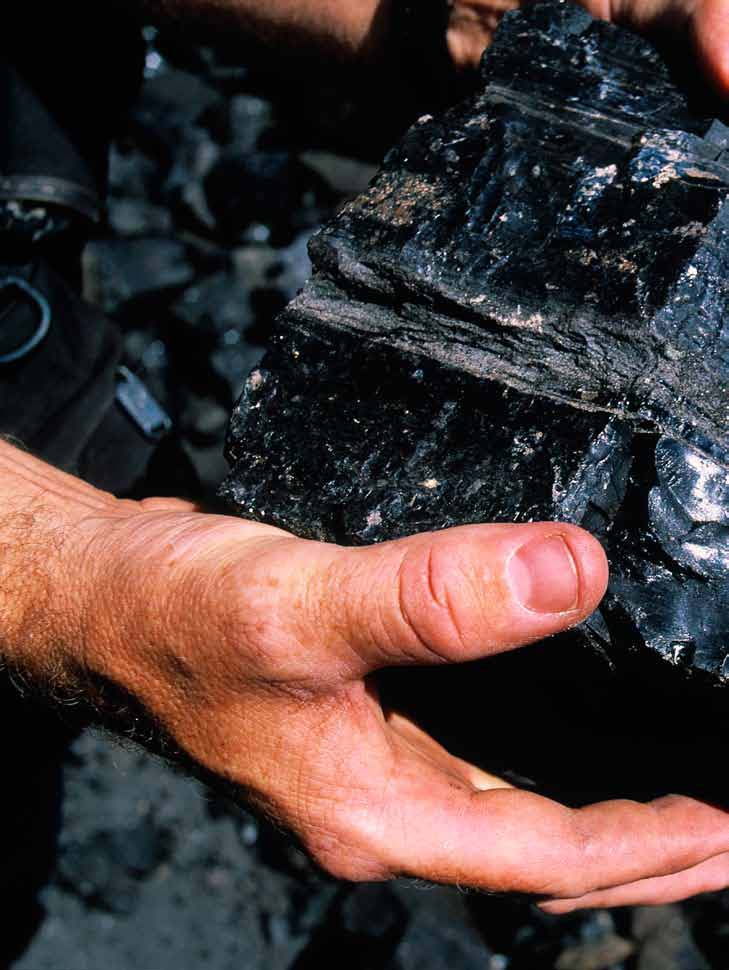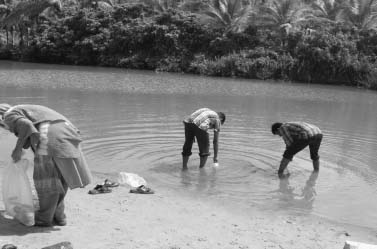Research Papers
Hue and cry for drinking water - Major struggle for nature’s call - A study by Udayvani and Arghyam
Posted on 22 Nov, 2011 04:32 PMThis study by Udayvani and Arghyam describes the findings of case studies undertaken by Udaywani to get a clear picture of the drinking water and toilet facilities in 8 Gram Panchayats of the 6 Districts of Karnataka following the ASHWAS survey conducted by Arghyam that included a survey of Household Water and Sanitation in 172 Gram Panchayats across 28 districts of Karnataka (all except Bangalore Urban).
Politicians for reform - Proceedings of the State Water Ministers’ workshop on rural water supply policy reforms in India - Cochin (Kerala) - (1999)
Posted on 22 Nov, 2011 10:01 AMThe workshop was hosted by Government of Kerala and the Water and Sanitation Program, South Asia with the Government of India, The World Bank Institute and the World Bank was held at Cochin, Kerala from December 7th to December 8th, 1999.
Mining India: Sustainably for growth – A report by Ernst & Young and ASSOCHAM
Posted on 20 Nov, 2011 09:36 AM It deals with issues around capital raising, policy framework, efficiency and sustainability and provides a way forward for strategic acceleration of the benefits.
It deals with issues around capital raising, policy framework, efficiency and sustainability and provides a way forward for strategic acceleration of the benefits.
Water quality hot-spots in rivers of India – A report by Central Water Commission
Posted on 08 Nov, 2011 01:03 PM It evolves a methodology for identifying hot spots in Indian rivers. The water quality data is based on the average values observed during the last ten years (2001-2011) at 371 monitoring stations of CWC on almost all major, medium and minor rivers in India. In respect of Dissolved Oxygen and Biochemical Oxygen Demand, the Central Pollution Control Board's classification has been considered for evaluating the hot spot in the rivers.
It evolves a methodology for identifying hot spots in Indian rivers. The water quality data is based on the average values observed during the last ten years (2001-2011) at 371 monitoring stations of CWC on almost all major, medium and minor rivers in India. In respect of Dissolved Oxygen and Biochemical Oxygen Demand, the Central Pollution Control Board's classification has been considered for evaluating the hot spot in the rivers.
The physical and chemical quality of river water is important in deciding its suitability for drinking purposes. As such the suitability of river water for potable uses with regard to its chemical quality has to be deciphered and defined on the basis of the some vital characteristics of the water. Bureau of Indian Standards (BIS) vide its document IS: 10500:1991, edition 2.2 (2003‐09) has recommended the quality standards for drinking water and these have been used for finding the suitability of river water. On this basis of classification, the natural river water of India has been categorized as desirable, permissible and unfit for human consumption.
Assam’s strategy and action plan on climate change - Recommendations - First draft - ASTEC (2011)
Posted on 07 Nov, 2011 11:20 AMThis report by the Assam Science Technology & Environment Council (ASTEC) contains the compiled recommendation of three consultative workshops organized in Assam University, Gauhati University and
Water poverty in urban India - A study of major cities - A seminar paper - Tata Institute of Social Sciences
Posted on 05 Nov, 2011 12:02 PMThis seminar paper submitted for the UGC Summer Programme at the Jamia Millia Islamia University describes the findings of a study that explored the quantity of water used in domestic households vis-à-vis the recommended quantity of water consumption in seven major Indian cities, n
Efficacy, effectiveness and acceptability of closed containers, Moringa oleifera and in-home chlorination - A paper from AJTMH
Posted on 04 Nov, 2011 12:38 PMThis study published in the journal The American Journal of Tropical Medicine and Hygiene (AJTMH) aimed at assessing water contamination and the relative effectiveness of three options for point-of-use water treatment in South India.
Environmental monitoring programme on water quality in Kerala – A report by KSCSTE and CWRDM
Posted on 03 Nov, 2011 08:54 PM This report by the Kerala State Council for Science, Technology and Environment (KSCSTE) and Centre for Water Resources Development and Management (CWRDM) on water quality monitoring in Kerala covers all its forty four river basins. This is being done under the “Environmental Monitoring Programme on Water Quality” under which samples are being collected both from surface and groundwater sources.
This report by the Kerala State Council for Science, Technology and Environment (KSCSTE) and Centre for Water Resources Development and Management (CWRDM) on water quality monitoring in Kerala covers all its forty four river basins. This is being done under the “Environmental Monitoring Programme on Water Quality” under which samples are being collected both from surface and groundwater sources.
Groundwater sampling stations were fixed after conducting a sanitary survey in the panchayats. Water Quality Information System is being developed using Geographical Information Systems (GIS) to manage the water quality from point or non-point source of pollution.
In the first phase of the project, three river basins of Kerala viz. Kabbini, Periyar and Neyyar were monitored. The network was later expanded to basins such as Chaliyar, Kadalundi, Meenachil, Karamana, Anjarakandi, Pamba, Muvattupuzha, Bharatapuzha, and Chalakudy.
Impacts of climate change on public health in India - Paper published in Environmental Health Perspectives
Posted on 03 Nov, 2011 07:40 PMThis paper published in the journal Environmental Health Perspectives briefly summarises the relevant literature and highlights the challenges and opportunities for innovative research in the context of the impact of changing temperatures and precipitation patterns due to climate change on the health of populations from developing countries such as India.
Climate change impact assessment of water resources of India - A paper from Current Science
Posted on 02 Nov, 2011 10:52 AMThis paper published in the journal Current Science presents the findings of a study has been taken up to quantify the possible impacts of the climate change on the water resources of Indian river systems within the constraints of the uncertainty of climate change predictions. The study uses the PRECIS daily weather data to determine the spatio-temporal water availability in the river systems.
A distributed hydrological model, namely SWAT has been used to simulate all the river basins of the country. The analysis has been performed to evaluate the severity of droughts and floods and thus identify the vulnerable hotspots that may require attention in view of the climate change in various parts of the country.
Impacts of climate change and climate variability on the water resources are likely to affect irrigated agriculture, installed power capacity, environmental flows in the dry season and higher flows during the wet season, thereby causing severe droughts and floods in urban and rural areas. Climate change impacts on water resources which are addressed and analysed in the present study include impacts on annual and inter-annual water availability as well as extreme events of droughts and floods.